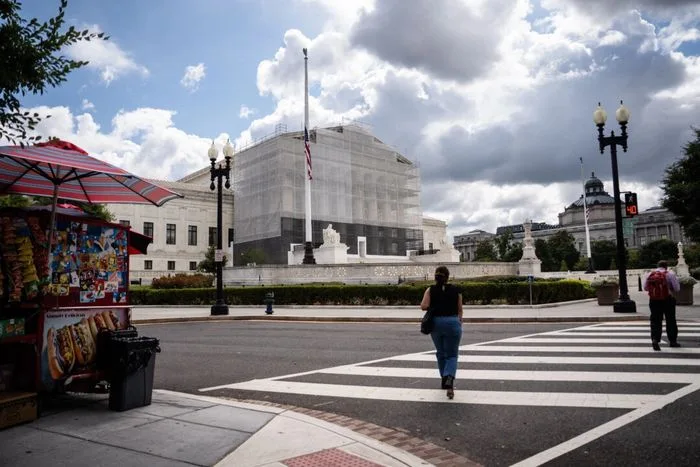By Matthew Vadum
The Supreme Court on Sept. 26 extended its prior order letting the Trump administration temporarily withhold approximately $4 billion in foreign aid funding previously authorized by Congress.
The full court granted the federal government’s request to impound the congressionally appropriated funds after Chief Justice John Roberts granted an administrative stay on Sept. 9, allowing the justices more time to consider the request.
The case is U.S. Department of State v. AIDS Vaccine Advocacy Coalition and Global Health Council v. Trump.
Justice Elena Kagan filed a dissenting opinion, which Justices Sonia Sotomayor and Ketanji Brown Jackson joined.
The Department of Justice (DOJ) had previously asked the justices to pause a ruling by Washington-based U.S. District Judge Amir Ali, who ordered the federal government to spend about $4 billion in previously appropriated funds before they expire at the end of the current federal fiscal year on Sept. 30.
The money is earmarked for foreign aid and United Nations peacekeeping projects. Various nonprofit groups applied to the courts to free up the funds.
The court also said the harms the executive branch faces from interference in the conduct of the nation’s foreign affairs “appear to outweigh the potential harm faced by respondents.”
The high court said that Ali’s order of Sept. 3 granting a preliminary injunction requiring the government to spend the funds is stayed pending an appeal that is currently before the U.S. Court of Appeals for the District of Columbia Circuit.
The court cautioned that today’s ruling is only a “preliminary view, consistent with the standards for interim relief,” and that it should not be seen as a final determination on the merits of the case.
Dissenting Opinion
In her dissent, Kagan said the Supreme Court was in “uncharted territory” because the meaning and effect of the impoundment statute have barely been examined by the courts.
She said the issue, which is how power is allocated between the executive branch and Congress over the expenditure of public funds, is important, yet the Supreme Court “has dealt with the statute only in passing.”
Kagan said the president has asked Congress to formally rescind the $4 billion in foreign aid appropriations, but lawmakers have not yet acted on the request. Because the district court order requiring the funds to be spent by Sept. 30 has been suspended by the Supreme Court, “the effect is to prevent the funds from reaching their intended recipients—not just now but (because of their impending expiration) for all time.”
Under the Impoundment Control Act, the government must make a rescission request to Congress, which then has 45 days to approve the cancellation of appropriated funds. A “pocket rescission,” however, refers to such requests made within 45 days of the end of the federal fiscal year. In such cases, the funds are withheld during the 45-day congressional review period, and if Congress fails to act before the fiscal year ends, the funds expire.
Kagan said the “standard for granting emergency relief is supposed to be stringent. The Executive has not come close to meeting it here.”
The high court’s order will allow the executive branch “to cease obligating $4 billion in funds that Congress appropriated for foreign aid, and that will now never reach its intended recipients.”
Because this outcome “conflicts with the separation of powers, I respectfully dissent,” Kagan said.
The separation of powers is a constitutional doctrine that divides the government into three branches to prevent any single branch from accumulating too much power.
Arjun Singh contributed to this report.





